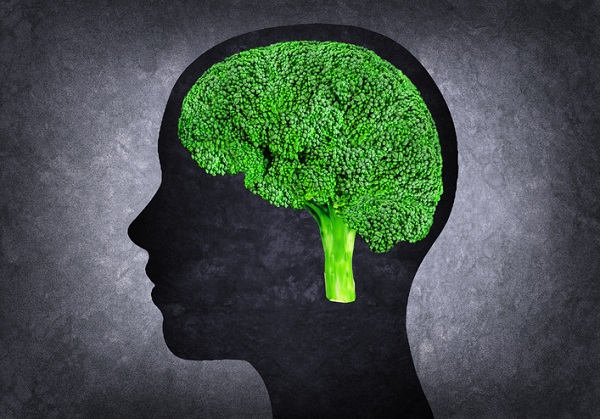The link between nutrition and mental health has only recently begun to be addressed in an academic and scientific capacity. For years, the common phrase ‘you are what you eat’ has only served as a reminder to keep health in mind when choosing the next meal, but contemporary professionals are now asking the public to keep their minds healthy by paying more attention to what they eat, and how it affects physical and mental wellbeing.
By 2030, mental health issues are expected to be the leading cause of disability in Canada. There are a variety of factors which contribute to mental illness and disease, but some can be self-regulated and maintained in order to decrease risks posed by genetics or biology, and that includes keeping a healthy and nutritious diet. Read on for more information on how new research is uncovering the important link between mental health and nutrition.
Personal Health Includes Body as well as Mind
Just as healthy foods are important to bodily wellbeing, it is also a vital contributor to mental health. Recent findings even indicate that diet may be as important to psychiatric health as it is to heart health, endocrinology, and gastroenterology (Beck, L., 2018).

The food we eat is associated with mood, behaviour, and cognitive function
Furthermore, diet can influence the biological pathways which affect the development of depression and mental health disorders. Neurotransmitters in the brain are fortified by nutrients which strengthen mental structure and function, and a nutritional imbalance may affect membrane fluidity, receptor function, and the release of hormones (Davison K.M., & Ng E., & Chandrasekera U., & Seely C., & Cairns J., & Mailhot-Hall L., & Sengmueller E., & Jaques M., & Palmer J., & Grant-Moore J., 2012). Additionally, a recent study produced a link demonstrating that children who eat less vegetables and fruit and more fast food and sugar were more likely to have ADHD symptoms (Clay, R.A., 2017). Students enrolled in wellness counselling training should thusly be aware that consuming foods with little nutritional value fails to provide the brain with the sustenance it needs to function at its fullest capacity.
What Exactly Is Brain Food?
Brain food is the umbrella term that covers all nutrient-rich food, such as produce, fish, and legumes, which play a significant etiological role in physical and mental health (Clay, R.A., 2017).

Nutrient-rich food can benefit brain function
Most foods that are high in nutrients have begun to be studied in neurocognitive disorders, and include B vitamins, vitamin E, omega-3 fatty acids, and iron. Fruits, vegetables, whole grains, nuts, and oily fish all contain anti-inflammatory properties, which help the brain regulate emotion and cognition (Beck, L., 2017). Additionally, omega-3 fatty acids from fish oil are particularly crucial to maintaining the integrity of brain cell membranes, which allow communication between cells.
Antioxidants, present in a majority of fresh produce, reduce free radical damage, which correlates with depressive symptoms and occurs in higher levels in people affected by bipolar disorder and schizophrenia (Beck, L., 2018). Serotonin is a brain chemical that maintains mood balance, and is associated with gut bacteria, also known as prebiotics. Pro-prebiotic food includes artichokes, asparagus, bananas, and yogurt, and promotes the synthesis of serotonin in the body, which affects how the brain regulates mood. For these important reasons, professionals with a wellness counselling diploma make sure to encourage healthy eating.
Why a Career in Wellness Counselling Includes Being Aware of Food Insecurity
Food insecurity occurs when there is insufficient access to affordable, nutritious food. This can be due to a variety of factors, including geographical distance, income status, and the number of household dependants, which cause the provider to turn to cheap, processed, and low-quality nutritional options.
Often, high-calorie food consumption is influenced by cultural and policy developments related to access to housing, incarceration, and food production. (Davison K.M., & Ng E., & Chandrasekera U., & Seely C., & Cairns J., & Mailhot-Hall L., & Sengmueller E., & Jaques M., & Palmer J., & Grant-Moore J., 2012). High levels of food insecurity mean that obtaining proper nutrition is not only difficult, but resource and time-consuming, and the lack of proper nutrition can additionally contribute to stress, anxiety, and depression (Jessiman-Perreault, & G., McIntyre, L., 2017).
More simply, the wellbeing of a community is relative and varies, and while some households have the means to feed themselves, others might not have the same opportunities, relevant knowledge, or income (Davison K.M., & Ng E., & Chandrasekera U., & Seely C., & Cairns J., & Mailhot-Hall L., & Sengmueller E., & Jaques M., & Palmer J., & Grant-Moore J., 2012). This leads to choosing cost-effective but low-quality options, and typically ones which are high in refined sugar, which can impair both brain function and the body’s regulation of insulin, leading to greater health complications, which further affects levels of food insecurity. As a result, advocacy is important for improving the health and wellbeing of everyone.
Are you interested in a career in wellness counselling?
Contact Rhodes Wellness College for more information.
Works Cited
Beck, L. (2018, May 15). Can your diet shape your mental health? The Globe and Mail. Retrieved from: https://www.theglobeandmail.com/life/can-your-diet-shape-your-mental-health/article24647105/
Clay, R.A. (2017). The link between food and mental health. American Psychological Association. Monitor on Psychology, 48, 8. Retrieved from: http://www.apa.org/monitor/2017/09/food-mental-health.aspx
Davison K.M., & Ng E., & Chandrasekera U., & Seely C., & Cairns J., & Mailhot-Hall L., & Sengmueller E., & Jaques M., & Palmer J., & Grant-Moore J. (2012). The Role of Nutrition in Mental Health Promotion and Prevention (1). Toronto: Dietitians of Canada. Access at: www.dietitians.ca/mentalhealth
Jessiman-Perreault, G., McIntyre, L. (2017). The household food insecurity gradient and potential reductions in adverse population mental health outcomes in Canadian adults. Population Health, 3. https://doi.org/10.1016/j.ssmph.2017.05.013
Selhub, E. MD. (2018, April 5). Nutritional psychiatry: Your brain on food. Harvard Health Blog. Retreived from: https://www.health.harvard.edu/blog/nutritional-psychiatry-your-brain-on-food-201511168626










